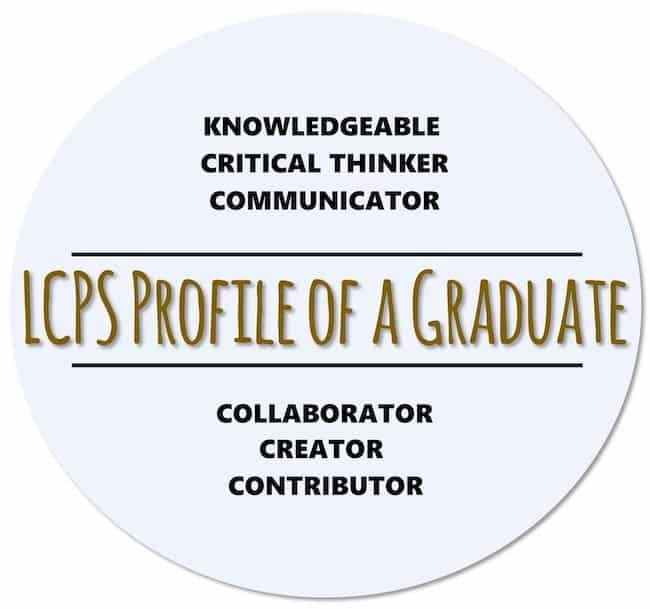Podcast: Eric Williams on Empowering Students to Make a Contribution

“Empowering all students to make meaningful contributions to the world.” That’s the remarkable motto of the Loudoun County Public Schools (LCPS), a big district northwest of Washington D.C. serving about 84,000 students in 94 schools.
In his five years as superintendent in Loudoun, Dr. Eric Williams led community conversations that resulted in updating district aims. While many districts reference citizenship as a goal, Williams likes the term contribution as it incorporates careers in the private sector, civic engagement and community service.
Williams joined the fast-growing district because they did not want to rest on their laurels, there was demand for improvement. Despite adding one to three schools a year, Williams keeps the focus on the joy of teaching and learning.
He believes in “engaging students in solving authentic problems as a means to developing knowledgeable critical thinkers, communicators, collaborators, creators and contributors.”
“Having students focus on authentic problems can be a game-changer, added Williams. “Ownership leads to persistence. Learning will be deeper.”
“When learners see themselves as an entrepreneur now, when there is a real audience for work, they see a future for themselves,” said Williams. Pictures of Contribution
Pictures of Contribution
In elementary school, Williams looks for students working in small groups to solve a problem. They might consult an expert to develop a knowledge base and then share the solution with that expert.
At one Loudoun elementary, a student was struggling with cancer. His classmates developed projects to learn about his type of cancer and raise funds for a cure. “We want to see learners choosing a problem and coming up with solutions across content areas,” said Williams.
Another elementary school developed pitches for Amazon’s second headquarters. Students did a ton of research on local geographic and economic strengths. Executives came and listened to the student proposals.
Middle school students developed pitches for historical markers. Based on a student proposal, the state approved a monument at the Ashburn Colored School, a standout during the era of segregation.
At a Loudoun high school students developed a project to test road de-icing materials. The driving question was that chemicals commonly used are bad for the environment. Students experimented with alternatives and shared their results broadly.
Future of Learning
Williams wants to change the way students experience high school. “The traditional structures get in the way of authentic work,” said Williams.
He’d like to add learning opportunities outside of school connected to learning in school. That could include senior year capstone experiences where young people would have a choice where they’ll work.
As students headed back to school, William made a statement about equity: LCPS is committed to providing a safe, empathetic, respectful and supportive learning environment in order to empower every student to make meaningful contributions to the world.
Key Takeaways
[2:33] How and when did Williams realize teaching was for him? When did he start his career as an educator?
[3:23] Tom and Williams speak about when they first met.
[3:37] Williams speaks about the work he was proud of when he served as Superintendent at York County School Division.
[4:14] What attracted Williams to work at Loudoun?
[5:44] How was Williams able to keep the focus at Loudoun on teaching and learning and not let himself and his board get preoccupied with simply managing growth?
[8:21] William describes their improvement agenda at Loudoun.
[10:15] How did Williams’ belief in empowering students to make meaningful contributions become so prominent in his work as an educator?
[13:30] Williams talks about Loudoun’s emphasis on the four Cs and why they don’t add the fifth C, citizenship.
[16:20] What a day of authentic learning looks like in the elementary schools of Loudoun County.[18:40] What a day of authentic learning looks like in the middle schools of Loudoun County.
[19:55] What a day of authentic learning looks like in the high schools of Loudoun County.
[21:36] Williams gives some examples of students contributing in Loudoun County, both in and out of school.
[25:43] Williams speaks about his recent statement about equity in Loudoun County.
[26:35] What’s next in Loudoun?
[27:22] Does Williams anticipate seeing changes in the traditional master schedule in secondary schools?
Mentioned in This Episode
Loudoun County Public Schools
Dr. Eric Williams’ LinkedIn
The Kern Family Foundation
Fairfax County Public Schools
For more, see:
- Project-Based Learning Provides Path For Increased Awareness of Self, Others and the World
- ConnectEd Links Learning to Career Pathways
- How New Models are Preparing Students for the Future of Work
Stay in-the-know with innovations in learning by signing up for the weekly Smart Update. This post includes mentions of a Getting Smart partner. For a full list of partners, affiliate organizations and all other disclosures, please see our Partner page.







0 Comments
Leave a Comment
Your email address will not be published. All fields are required.